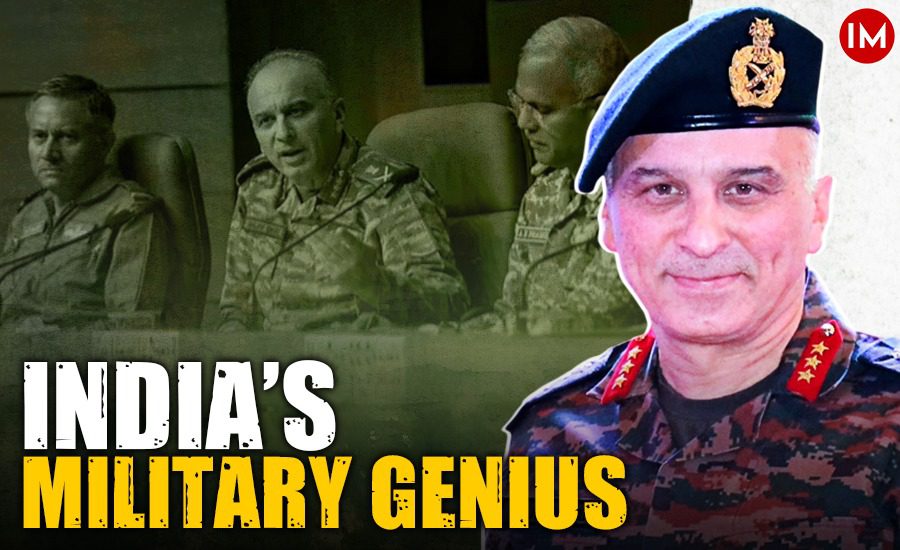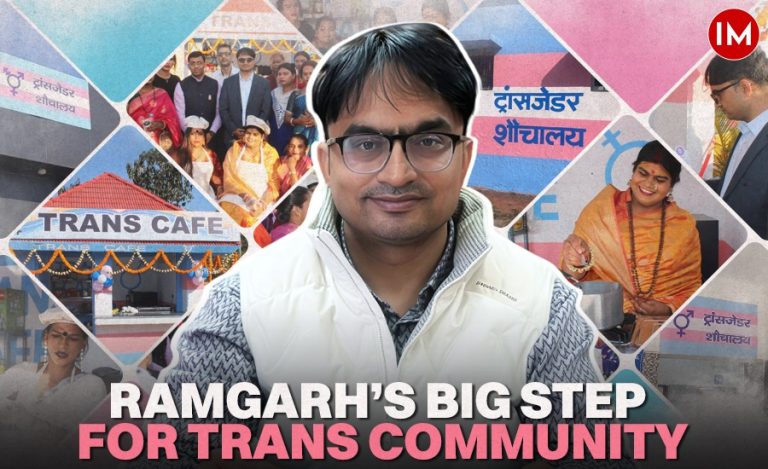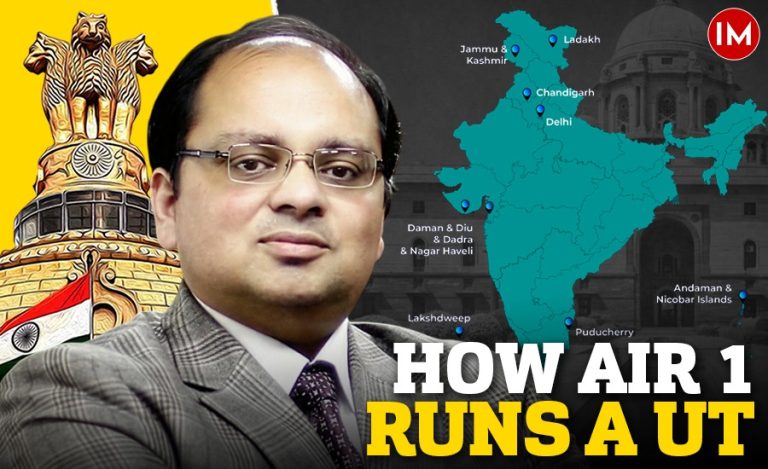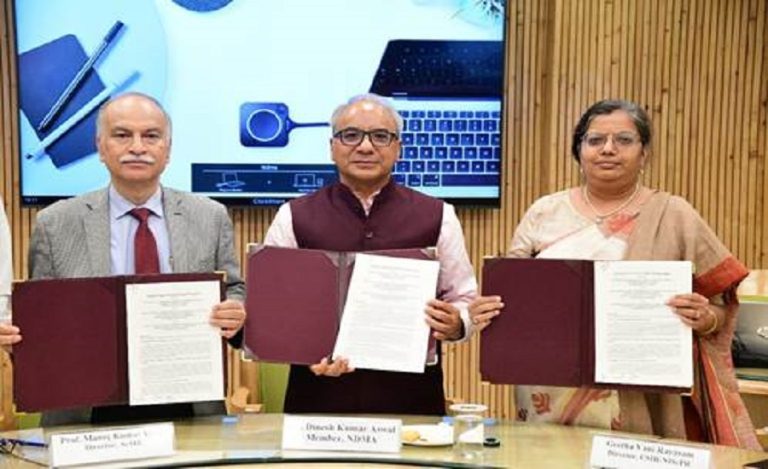“Targeting our airfields and logistics is extremely difficult… I saw that Virat Kohli has just retired from Test cricket; he is one of my favorites. In the 1970s, during the Ashes series between Australia and England, two Australian bowlers destroyed England’s batting lineup, and then Australia coined a proverb: ‘Ashes to ashes, dust to dust, if Thommo don’t get ya, Lillee must.’ If you understand the layers, you’ll get what I’m trying to convey. Even if you manage to cross all the layers, one of the layers in this grid system will still hit you.”
This witty yet profound statement was delivered by India’s Director General of Military Operations (DGMO) and military strategist, Lieutenant General (Lt Gen) Rajiv Ghai, during a press briefing on May 12th, following the ceasefire after India’s Operation Sindoor, which targeted terrorist launchpads in Pakistan-Occupied Kashmir (POK) and inside Pakistan.
So, who exactly is the DGMO? What’s his role? And why is he so crucial to the Indian Army and its battlefield operations?
Lt General Rajiv Ghai, the current DGMO of the Indian Army, is a highly decorated officer with more than three decades of distinguished service. Known for his strategic leadership in sensitive regions like Jammu and Kashmir and his pivotal role in military diplomacy, Lt Gen Ghai stands at the center of India’s operational and border security strategy.
Early Life and Education
Lt Gen Rajiv Ghai is a graduate of the prestigious Indian Military Academy, Dehradun, and was commissioned into the Kumaon Regiment in December 1989. From the outset of his career, he displayed exceptional leadership and tactical skills, especially in challenging terrains and counter-insurgency environments.
Military Career: Over Three Decades of Service
With over 33 years of military experience, Lt Gen Ghai has held numerous command and staff positions, including:
- Colonel General Staff in a division involved in counter-insurgency operations in Jammu and Kashmir.
- Brigadier at the Military Operations Directorate at Army Headquarters.
- Commanded a battalion on the Western Sector, a brigade, and a division along the Northern Borders.
Prior to his appointment as DGMO, he served as the General Officer Commanding (GoC) of the Chinar Corps, a unit deeply involved in counter-terror operations in Kashmir. In this role, he emphasized inter-agency cooperation and community engagement to counter radicalization and ensure long-term peace.
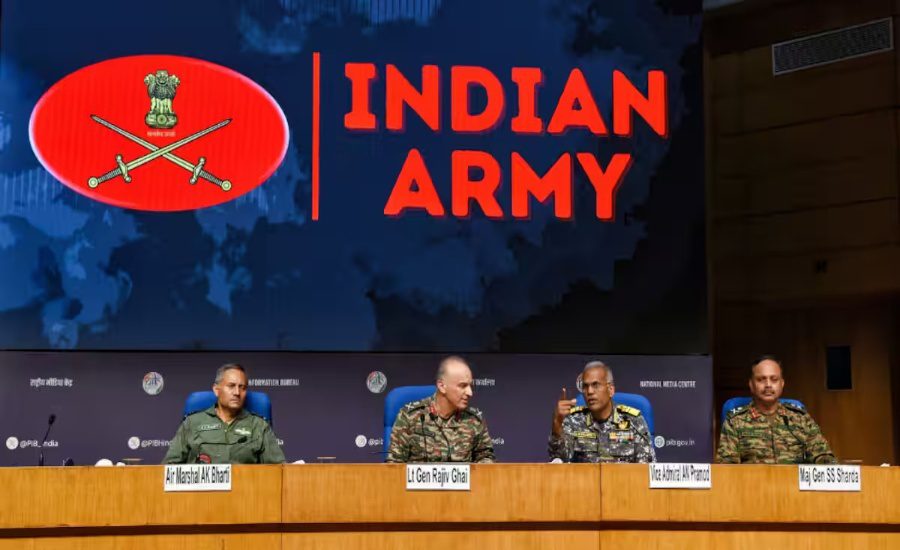
Appointment as DGMO: A Strategic Leadership Role
Lt Gen Rajiv Ghai took charge as Director General of Military Operations in October 2024. The DGMO is a senior three-star rank post that plays a critical role in:
- Planning and supervising all military operations, including combat, counter-terror, and strategic responses.
- Coordinating closely with other military branches, intelligence agencies, and government ministries.
- Serving as the chief interlocutor with Pakistan’s DGMO, directly engaging in military diplomacy and ceasefire arrangements.
The DGMO also has full authority over strategic wartime decisions and coordination from the outbreak of conflict to the signing of a ceasefire.
Honors and Decorations
Lt Gen Rajiv Ghai’s distinguished service has been recognized with several prestigious military honors:
- Uttam Yudh Seva Medal (UYSM) – For exceptional service in war-like operations.
- Ati Vishisht Seva Medal (AVSM) – For distinguished service of an exceptional order.
- Sena Medal (SM) – For gallantry or distinguished service in the Army.
DGMO: A Role of Critical National Importance
The role of DGMO encompasses oversight of all military operations, coordination with intelligence agencies, and strategic decision-making during war. The DGMO reports directly to the Chief of Army Staff and operates in close consultation with the Ministry of Defence.
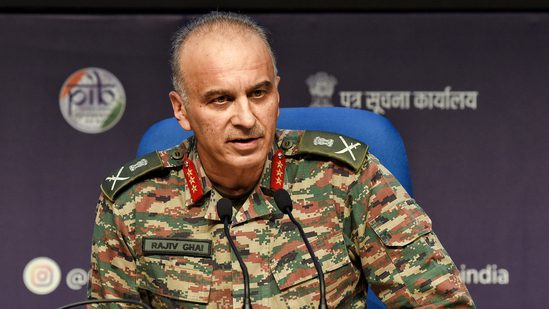
Operation Sindoor: Leading India’s Cross-Border Military Strike
Lt Gen Ghai was the key architect of Operation Sindoor, a bold cross-border strike conducted on May 7, 2025, targeting terror infrastructure inside Pakistan and Pakistan-occupied Kashmir. In a media briefing, he revealed the destruction of terror hubs, including the Lashkar-e-Taiba base at Muridke, and confirmed heavy casualties among the Pakistan Army.
The operation was reportedly a response to continued cross-border provocations, including strikes on civilian areas and religious sites. Lt Gen Ghai’s decisive leadership and coordination made the operation a military and strategic success.
India-Pakistan Ceasefire: A Delicate Balance
Following a sharp escalation along the Line of Control, India and Pakistan agreed to a ceasefire effective 5:00 PM IST on May 10, 2025. Lt Gen Ghai, as India’s DGMO, held direct communication with his Pakistani counterpart before and after the announcement.
Despite initial violations by Pakistan, including drone attacks and cross-border firing, Lt Gen Ghai stated that Indian forces had been instructed to respond decisively to safeguard lives and national integrity.
A crucial DGMO-level meeting is scheduled for May 12, 2025, and in coming days, to discuss the modalities of sustaining peace and ensuring ceasefire compliance. Lt Gen Ghai’s experience and diplomatic acumen make him a central figure in navigating this volatile security situation.
A Commander Shaping India’s Security Future
Lt General Rajiv Ghai is not just a decorated officer; he is a strategic thinker, operational commander, and military diplomat. His leadership in high-stakes operations like Operation Sindoor and his stewardship of ceasefire talks with Pakistan underline his vital role in India’s defense and diplomacy architecture.
As tensions continue to simmer along the borders, Lt Gen Ghai’s actions will be instrumental in determining whether the region inches closer to peace – or deeper into conflict.

